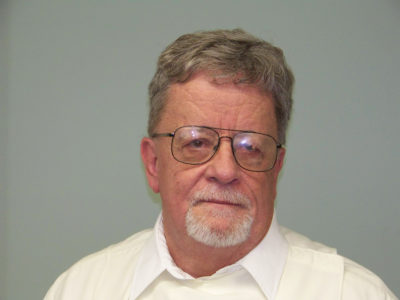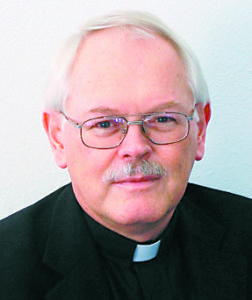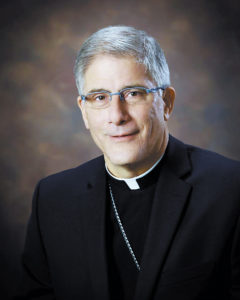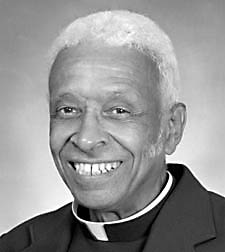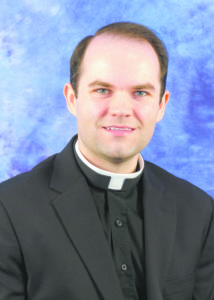
Father Aaron Williams
Spirit and truth
By Father Aaron Williams
The Most Holy Sacrament of the Eucharist is our Lord’s supreme gift to us. The Fathers of the Second Vatican Council rightly called it the “source and summit of the Christian life.” Pope Francis calls the Eucharist the “Living Memorial of [God’s] love.” It is both the promise and the means of friendship with the Lord.
It is the most precious treasure of the Church — even martyrdom pales in comparison to its glory. And, therefore, it is rightly the heart and center of our lives. Our Lord himself declares that, “Apart from Me, you can do nothing.” In the Holy Eucharist, our Lord unites us to Himself in a spiritual and physical manner, such that it is a true communion: He in us, and we in Him.
It is truly regrettable that so many people — indeed, so many Catholics — do not have faith in this supreme Sacrament of our Lord. God has chosen to communicate His love for humanity in such a simple and human sign, but just as His Son was rejected and spurned, so too the Sacrament of His Son’s Body is not accepted by some Catholics. Of course, this is not often a vicious act. There are not a good number of Christians who would willingly and viciously reject something that is an apparent gift from God. They doubt this sign most often because they simply do not understand it.
And, in some small way, this is unsurprising. Surely, we might ask, if our Lord truly willed that all people be united to Him in this Sacrament, He would have given us something more conspicuous — something akin to the few extraordinary Eucharistic miracles in the Church’s long history. Surely, then all would come to believe — would they not? Why does the Lord desire to reveal Himself to us in signs? Why not with extraordinary displays?
In the words of Saint Josemaria, “Jesus hides in the Blessed Sacrament of the altar because He wants us to dare to approach Him.” God tells Moses, “You cannot see My Face; for no man shall see me and live.” And, Moses too, after approaching the Lord in the Tent of Meeting, hid his face, for the glory of the Lord upon him was too radiant for others to see. Even our Lord’s human Body is a veil of the radiant glory of God. The one moment when His human Body is visibly glorified — the Transfiguration — the Apostles fall down in terror and hide their faces.
But, in this Sacrament of our Lord’s Body, Christ desires not that we cower, but that we gaze upon Him in wonder — that we should look upon Him, and He upon us. Our Lord yearns that we should approach Him, receive Him into our very bodies, and become one with Him, just as He and the Father are One. And, therefore, Saint Thomas declares in the sequence he composed for the feast of Corpus Christi:
Here beneath these signs are hidden
priceless things, to sense forbidden;
signs, not things, are all we see.
Flesh from bread, and Blood from wine,
yet is Christ in either sin,
all entire confessed to be.
The Sacrament we experience in the Mass is truly a veil. Our own frailty might desire that Christ should make Himself known in perhaps a grander sign, or with a vivid display; but, what we may not grasp is the sheer love of God present for us in this sign.
And so, perhaps not totally comprehending this great Sacrament, but out of love for God, we approach the altar. We gaze upon the Lord with bended knee. We quietly contemplate His love for us as we see Him held aloft. And, we receive Him fully and truly into our bodies in this Sacrament, so that we may become one with Him. Christ hides behind this simple bread, not so that we may have trouble finding Him there, but that we should not be afraid to look for Him.
That is how great God’s love is for all of us. God has so humbled Himself to appear to us to be simple — to appear to us to be something we can hold, something we can receive into our mouth. The God who created the universe, contains Himself in this tiny Host, just so that we can contain Him. Receive Him like a child — like you received your own first Holy Communion. Receive this gift with awe and in wonder. Prepare yourself by confession and penance. And, never fail to give thanks to Almighty God. (Adapted from a homily given on June 3.)
(Father Aaron Williams is the parochial vicar at St. Joseph in Greenville.)

